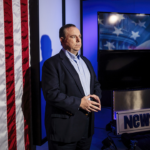However even in late February, one thing unusual had occurred. The sellers of those monetary insurance coverage insurance policies weren’t distinguishing between riskier debtors and safer ones, charging barely any extra for swaps on lower-rated debt. “The market is totally mispricing this,” Ackman informed his crew on that Sunday convention name. “Begin shopping for.”
Though he didn’t use the phrase, Ackman was calling the monetary market what it had clearly grow to be: a bubble, and one which was vulnerable to popping.
Within the 1600s, retailers in Amsterdam went loopy over tulip bulbs. 4 hundred years later, it was Japanese actual property, dot-com firms, and suburban houses. Some bubbles are clearly ludicrous even within the second (see: Beanie Infants) and a few solely on reflection, however the sample is reliably the identical: Evangelists pile in. Different traders, seized by a worry of lacking out on large beneficial properties, comply with on. Frenzied shopping for pushes an asset’s worth properly past what a sober financial evaluation can assist. Skeptics grumble whereas everybody will get wealthy.
Within the decade heading into 2020, the identical factor had occurred. Besides as a substitute of being concentrated in a single place, it got here for practically the entire of the worldwide monetary system. It was an all the pieces bubble.
The S&P 500 gained 400 p.c between March 2009 and March 2020 in an historic bull market. Debt obtained low cost and plentiful. The oddity that Ackman had seen—an absence of discernment amongst bond traders who charged barely extra curiosity to riskier debtors than safer ones—grew extra pronounced. Close to-zero rates of interest set by the Federal Reserve pressured traders to put money into something that may return somewhat revenue, pushing them additional and additional into riskier territory. The ten-year financial growth had made traders blind to danger, forgetful that markets can go down simply as simply as up.
Typical knowledge says no financial pattern has a single trigger, however the decade-long bull market that grew out of the wreckage of the 2008 meltdown could come as shut as something to proving that unsuitable. The Federal Reserve had saved rates of interest close to zero within the years after the worldwide monetary disaster. That pressured traders to search for options. They pile into shares, company bonds, actual property, and anything that guarantees a return. So all the pieces goes up.
Skeptics have been transformed, grumbling. By the last decade’s closing years, FOMO had changed fundamentals because the dominant pressure in monetary markets. It was a bubble—not as patently absurd as the frenzy for Beanie Infants or Dutch tulips, however a bubble nonetheless—and the one query was what would burst it.
Ackman was ready, holding out a bucket.
The coronavirus represented one thing traders hadn’t seen in additional than a decade: a shock whose impression was doubtlessly big and primarily unknowable. On February 27, the inventory market posted its largest one-day level drop in historical past. The S&P 50 was now down 12 p.c from its highs just some weeks earlier, formally in what economists name “correction” territory. Of the twenty-six earlier market slides of comparable measurement in historical past, the common had taken 4 months. This one took simply six days.
He emailed Warren Buffett, whose inventory Ackman had flirted with promoting just some days earlier. Berkshire’s annual shareholder assembly, recognized within the press as “Woodstock for capitalists,” drew tens of 1000’s of individuals every spring to Nebraska.
The billionaire was as folksy as ever in his reply. In an electronic mail dictated to his longtime secretary—the octogenarian doesn’t use electronic mail—he mentioned that he hoped to see Ackman at this yr’s assembly, set for Could 2, and invited the investor and Oxman to a non-public brunch. “Sadly we will’t embrace Raika,” he mentioned of Ackman’s toddler daughter, “although if she owns Berkshire, I hope she continues to vote for me and Charlie” as members of the board of administrators. He added: “I don’t know if the coronavirus will have an effect on attendance, however Charlie and I plan on having a good time.”
Beginning to really feel considerably silly, Ackman tried one other of the world’s richest males. “I consider I’ve an correct and differentiated view of the financial impression of coronavirus, if you happen to’re focused on evaluating notes,” learn the e-mail that he typed out to Invoice Gates on the afternoon of February 28. The Microsoft founder had authored an op-ed piece the day earlier than wherein he mentioned the coronavirus was beginning to look “just like the once-in-a-century pathogen we’ve been frightened about.”
He by no means heard again.
By early March, Pershing Sq. had purchased greater than $1 billion of credit-default swaps on broad baskets of bonds. The place value $27 million, which Ackman thought was the discount of a lifetime.
Though credit-default swaps are sometimes likened to monetary insurance coverage insurance policies, they’re totally different in a single key regard: The occasion they shield towards—a borrower defaulting on its debt—doesn’t really should occur for the policyholder to make cash. The swaps themselves are monetary investments that acquire in paper worth because the occasion they guard towards seems extra possible. All it could take for Pershing Sq.’s wager to repay was for the market to get spooked.
And because the coronavirus unfold throughout Asia after which into the US, international traders obtained scared in a rush. From a excessive in early March, the benchmark index of company bonds fell 15 p.c by March 20. On paper, Pershing Sq.’s funding was price greater than $2 billion. It was as if he had purchased flood insurance coverage throughout a drought yr for a pittance and offered it throughout a monsoon.
By the point his merchants liquidated the place three days later, Ackman had netted $2.6 billion in income, a hundred-thousand-fold return, within the span of three weeks.

